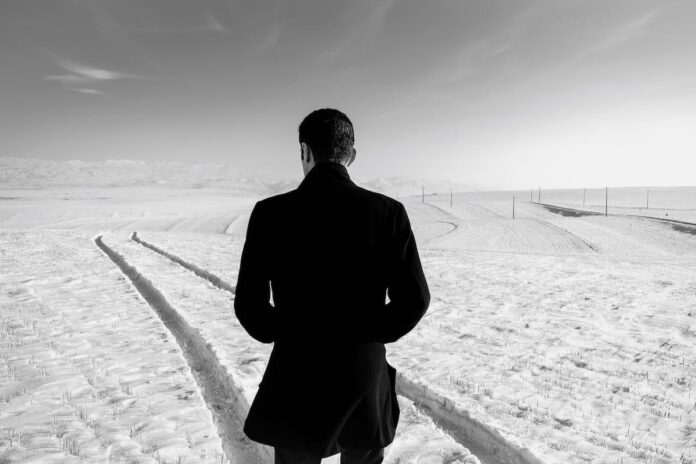Uneasy Autumn
A rioting waxwing flash mob strikes,
looting the trees of nut and fruit.
The forest’s carcass shows bright streaks
of yellow; the birds fly off in fright.
Perishing nature mocks my death
(because in spring I will be gone)
while nature’s tedious cycle gets
another resurrection done.
From the start I knew the rules.
I need no theologian’s tomes
to hoodwink meaning from old tombs
or dignify our short-lived roles.
I wonder, could Pascal be right?
Who made all this? A loving God?
Invisible, distant, ruler and guide
for the beautiful, frightening world He wrought?
Leaves are fallen, birds have left,
in my mouth a bitter taste.
Is faith a gift or a difficult test?
A month ago I would have laughed.
Field Trip
I am not a Jew.
I have not fought a war.
Having been born in a lucky time and place,
I have only experienced cruelty vicariously.
And so I was unready
to meet evil so directly.
I was the teacher in charge
of the field trip to the Holocaust Museum.
We had visited the website,
and read Wiesel’s Night,
but the smell of leather, sweat, and misery
in the room of shoes assaulted our composure.
Some of the exhibits
of sadistic medical tortures
were so obscene that they were placed in bins.
You had to be adult height to look down on them.
A harder test for me
was the gallery of drawings
made by children in the hellish camps—
pictures of brick walls in black and rust—
and toys, broken, from parents
unable to give comfort. Did they lie,
and tell their children all would be made right?
How could they do it? Yet, how could they not?
I gathered my students,
lacking any words with which to help them ask
the questions that the ordeal forced from us.
I wondered whether their parents, when they knew
what their children had seen
and how they had been troubled
would flock in anger to the next school board meeting
demanding that no future class of teenagers
be forced to struggle
and be made uncomfortable
by the bothersome truth that God, to get our attention,
lets the Devil teach the rest of us compassion.
A Walk in the Snow
Snow reminds us to be silent.
It tucks us in and hushes us,
offering sleep—not death,
promising peace—not oblivion.
Things that chirp and crackle
disappear into their hiding places,
leaving a blank, white surface
for branches to write in shadow-runes.
Lacy flakes, fragile but lethal,
caress me and whisper seductively,
clinging to hair and clothes,
sucking my warmth like little vampires.
The biting chill lasts only a short while,
between the first pleasant coolness
and the final erasing numbness.
I lie down and make the snow angel
that will usher me into the rushing forever.
What Children Know about Fairness
You don’t have to explain fairness to children.
They understand it instinctively, better than their parents.
The same child who would give his last cookie to a playmate
will count every jelly bean in his brother’s Easter basket.
Woe if his brother has one more than him.
The little scorekeepers are as passionate as Amos about fairness.
When they cry from the depth of their souls, “That’s not fair!”
their parents always reply, “Offer it up,” or “Life isn’t fair.”
But kids know better. They know life should be fair.
And if their parents really wanted to, they could be fair.
To be fair, you have to listen, like King Solomon
in the story about the baby with two moms.
You have to pay attention and make an effort—
(just as parents are always telling kids to do).
If you fuck up justice, you’d better not expect any mercy.
An Old Woman at Her Sewing Machine
She sits at midnight with her trusty Bernina,
unable to sleep because of the arthritis
in knees and back, thinking of her children
who never visit, and of their children,
some of whom, to date, she has never met.
Her lamp creates an island of light in darkness.
She assembles bits of cloth, breathes life into them.
Her swollen fingers work, painfully pinching
the fabric into the forms that she imagines
behind her thick glasses, working out her plan.
What is she making as she labors alone
with such agonizing single-mindedness,
refusing to submit to aches or sorrows?
Is it a stuffed animal for a grandchild
who has no loving memory of her?
Is she embroidering an altar cloth
with green vines, purple grapes, and golden wheat,
offering her labor of love to her unseen God?
Or is she carefully sewing the modest dress
that she will wear, hidden in her coffin?
Limitations
I sit on a missal at Mass in a mall.
I’m a liminal simian in a small stall.
A stallion on stilts allots slots on a list.
A slim, Latin man is lost in a mist.
No motion! A loon sits still on a stool;
it tilts its tail, insists on a tool.
In Italian, I am ill: “Sono malata.”
Am I too ill to toil on a sonata?
An animal tattoo still stains animations.
Is it too soon to moon a million stations?
A talon slams into a minimal mailman.
A militant lamia slits an ottoman.
At last in a mill I assail imitations.
I toss a lasso to attain limitations.
About the Author
Glenn Wright is a retired teacher, seventy-one years old, living in Anchorage, Alaska with his wife, Dorothy, and his dog, Bethany. He writes poetry in order to master the things that frighten him, to ponder the things that puzzle him, and to celebrate the things that delight him.
















